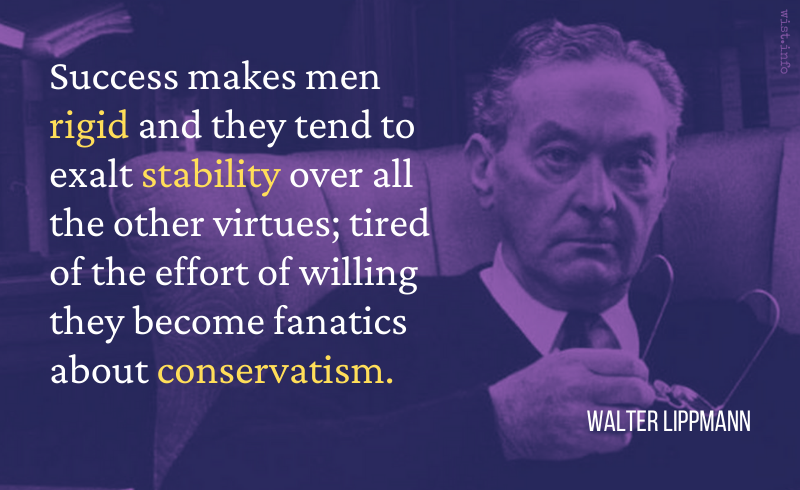But what is there in man’s precarious life
To be relied on? o’er the foamy deep
Rides the swift vessel by the wind impell’d:
But as to human fortunes, Time reduces
The great to nothing, and augments the small.Euripides (485?-406? BC) Greek tragic dramatist
Bellerophon [Βελλεροφῶν], frag. 304 (TGF) (c. 430 BC) [tr. Wodhull (1809)]
(Source)
Barnes frag. 117, Musgrave frag. 20. Alternate translations:
Where indeed is there sureness in man's life? For swift ships the winds drive a straight path on the ocean deep, but men's fortunes are changed by the largeness of time, their greatness to nothing, while with increase for the lesser ....
[tr. Collard, Hargreaves, Cropp (1995)]
Where -- where --
for those that die
life’s sure foundation? If we were ships
over the depths of ocean
winds would drive us
straight.
But those that die
their fortune shifts, it veers
in twists of fate -- as Time
(slowly --– slowly) generates itself
at its own leisure
reducing what was great
to nothing – raising up
another ....
[tr. Stevens (2012)]
Quotations about:
stability
Note not all quotations have been tagged, so Search may find additional quotes on this topic.
Legitimacy is based on three things. First of all, the people who are asked to obey authority have to feel like they have a voice — that if they speak up, they will be heard. Second, the law has to be predictable. There has to be a reasonable expectation that the rules tomorrow are going to be roughly the same as the rules today. And third, the authority has to be fair. It can’t treat one group differently from another.
Malcolm Gladwell (b. 1963) Anglo-Canadian journalist, author, public speaker
David and Goliath: Underdogs, Misfits, and the Art of Battling Giants (2013)
(Source)
Many clever men like you have trusted to civilization. Many clever Babylonians, many clever Egyptians, many clever men at the end of Rome. Can you tell me, in a world that is flagrant with the failures of civilisation, what there is particularly immortal about yours?
Gilbert Keith Chesterton (1874-1936) English journalist and writer
The Napoleon of Notting Hill, Book 1, ch. 2 (1904)
(Source)
Compromise, if not the spice of life, is its solidity.
Phyllis McGinley (1905-1978) American author, poet
“Suburbia: Of Thee I Sing,” Harper’s magazine (Dec 1949)
(Source)
It is only in romances that people undergo a sudden metamorphosis. In real life, even after the most terrible experiences, the main character remains exactly the same.
There is a strong conservative instinct in the average man or woman, born of the hereditary fear of life, that prompts them to cling to old standards, or, if too intelligent to look inhospitably upon progress, to move very slowly. Both types are the brakes and wheelhorses necessary to a stable civilization, but history, even current history in the newspapers, would be dull reading if there were no adventurous spirits willing to do battle for new ideas.
Gertrude Atherton (1857-1948) American author, essayist
The Living Present, Book 2, ch. 1, sec. 1 (1917)
(Source)
Success makes men rigid and they tend to exalt stability over all the other virtues; tired of the effort of willing they become fanatics about conservatism.
Walter Lippmann (1889-1974) American journalist and author
A Preface to Politics, ch. 1 (1914)
(Source)
Man’s urge for change and his need for stability have always balanced and checked each other, and our current vocabulary, which distinguishes between two factions, the progressives and the conservatives, indicates a state of affairs in which this balance has been thrown out of order. No civilization — the man-made artifact to house successive generations — would ever have been possible without a framework of stability, to provide the wherein for the flux of change.
Hannah Arendt (1906-1975) German-American philosopher, political theorist
“On Violence,” Crises of the Republic (1972)
(Source)
But nowadays men can not love seven night but they must have all their desires: that love may not endure by reason; for where they be soon accorded and hasty, heat soon it cooleth. Right so fareth love nowadays, soon hot soon cold: this is no stability. But the old love was not so; men and women could love together seven years, and no lycours lusts were between them, and then was love, truth, and faithfulness: and lo, in likewise was used love in King Arthur’s days.
The difference between the Japanese and the American is summed up in their opposite reactions to the proverb (popular in both nations), “A rolling stone gathers no moss.” Epidemiologist S. Leonard Syme observes that to the Japanese, moss is exquisite and valued; a stone is enhanced by moss; hence a person who keeps moving and changing never acquires the beauty and benefits of stability. To Americans, the proverb is an admonition to keep rolling, to keep from being covered with clinging attachments.
In politics, again, it is almost a commonplace, that a party of order or stability, and a party of progress or reform, are both necessary elements of a healthy state of political life. […] Each of these modes of thinking derives its utility from the deficiencies of the other; but it is in a great measure the opposition of the other that keeps each within the limits of reason and sanity.
John Stuart Mill (1806-1873) English philosopher and economist
On Liberty, ch. 2 “Of the Liberty of Thought and Discussion” (1859)
(Source)
[T]imid men […] prefer the calm of despotism to the boisterous sea of liberty.
Thomas Jefferson (1743-1826) American political philosopher, polymath, statesman, US President (1801-09)
Letter to Philip Mazzei (24 Apr 1796)
(Source)
A strong mind is one which does not lose its balance even under the most violent excitement.
[Ein starkes Gemüt ist ein solches, welches auch bei den heftigsten Regungen nicht aus dem Gleichgewicht kommt.]
Karl von Clausewitz (1780-1831) Prussian soldier, historian, military theorist
On War [Vom Kriege], Book 1, ch. 3 “On Military Genius [Der Kriegerische Genius],” (1.3) (1832) [tr. Graham (1873)]
(Source)
(Source (German)). Alternate translations:
A stout heart is one which does not lose its balance even under the most violent excitement.
[tr. Jolles (1943)]
A strong character is one that will not be unbalanced by the most powerful emotions.
[tr. Howard & Paret (1976)]
Truth is always in danger of being sacrificed on the altars of good taste and social stability.
William Sloane Coffin, Jr. (1924-2006) American minister, social activist
Credo, “Social Justice and Civil Liberties” (2004)
(Source)
















